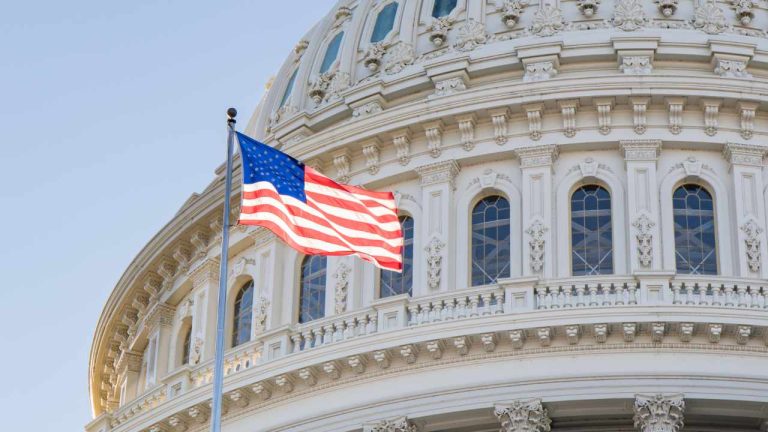
The U.S. House Financial Services Committee has passed four crypto bills. “Congress is asserting its authority to design a regulatory framework, rather than allowing overzealous federal agencies to fill the gap with enforcement actions,” said the CEO of Blockchain Association.
US House Committee Advances 4 Crypto Bills
The U.S. House Financial Services Committee passed four digital asset bills last week. Following the passing of the bills, Kristin Smith, CEO of Blockchain Association, tweeted Friday: “This is a result of a coordinated effort to educate + support crypto’s Congressional champions.” The executive continued:
This week was a milestone for the American crypto industry, and for the promise of real progress on the path toward a workable regulatory framework in the U.S.
The four bills are the Financial Innovation and Technology (FIT) for the 21st Century Act, the Blockchain Regulatory Certainty Act, the Clarity for Payment Stablecoins Act, and the Keep Your Coins Act.
The FIT for the 21st Century Act establishes a comprehensive regulatory framework for the issuance and trading of digital assets at the U.S. Securities and Exchange Commission (SEC) and the Commodity Futures Trading Commission (CFTC). The Blockchain Regulatory Certainty Act “provides that blockchain developers and providers of blockchain services that do not take control of consumer funds are not deemed financial institutions or money service businesses under the law,” the committee detailed.
The Clarity for Payment Stablecoins Act recognizes several regulatory paths for approving and regulating stablecoin issuers. Meanwhile, the Keep Your Coins Act protects the self-custody of crypto.
“These votes are a big deal for crypto in the U.S.,” Smith opined. “While there’s more work to do, and the FIT 21 Act is not yet perfect, we’re excited by the progress.”
Noting that “Congress is asserting its authority to design a regulatory framework, rather than allowing overzealous federal agencies to fill the gap with enforcement actions,” the executive emphasized:
It’s the first time crypto regulatory bills have been voted out of committee, on their way to a full House vote.
What do you think about the U.S. House Financial Services Committee advancing the four crypto bills? Let us know in the comments section below.













